Full border controls with the EU won’t be ready until at least six months after the end of the Brexit transition period, the government has announced.
Businesses importing goods from Europe will be asked to keep records from 1 January next year of what tariffs they need to pay, but will not be asked to pay them until July.
It comes amid warnings of a shortfall in customs agents to deal with the huge increase in bureaucracy, and tight deadlines for building the new border infrastructure required.
Download the new Independent Premium app
Sharing the full story, not just the headlines
Business groups have also warned that firms are not ready for the change, while trade experts said this week that companies did not yet have enough information about how the border would actually be operated to properly get ready.
The government says it will phase in full controls from April on products of animal origin, with the extra forms and customs declarations required for all traders three months later.
Officials say they were working on the basis that full controls would be in place for July but that they could be delayed even longer if there is significant disruption.
The European Union is expected to impose full border controls on goods travelling from the UK on 1 January as planned.
“Today’s announcement is very welcome news for the logistics industry,” said Alex Veitch, head of international policy at Freight Transport Association (FTA).
“Government has listened to our concerns and made allowances to enable our sector to recover from the Covid-19 pandemic and plan effectively and in good time for a new trading relationship with Europe,” he said, adding that business would “now have time to learn and adapt to new procedures”.
Michael Gove, the cabinet office minister who is overseeing much of Brexit preparation, said: “We have informed the EU today that we will not extend the transition period. The moment for extension has now passed. At the end of this year we will control our own laws and borders which is why we are able to take the sovereign decision to introduce arrangements in a way that gives businesses impacted by coronavirus time to adjust.
The latest news on Brexit, politics and beyond direct to your inbox
“Today’s announcement is an important step towards getting the country ready for the end of the transition period, but there is still more work to be done by both government and industry to ensure we are ready to seize the opportunities of being a fully independent United Kingdom.”


1/37
Pro-Brexit supporters celebrating in Parliament Square, after the UK left the European Union on 31 January. Ending 47 years of membership
PA
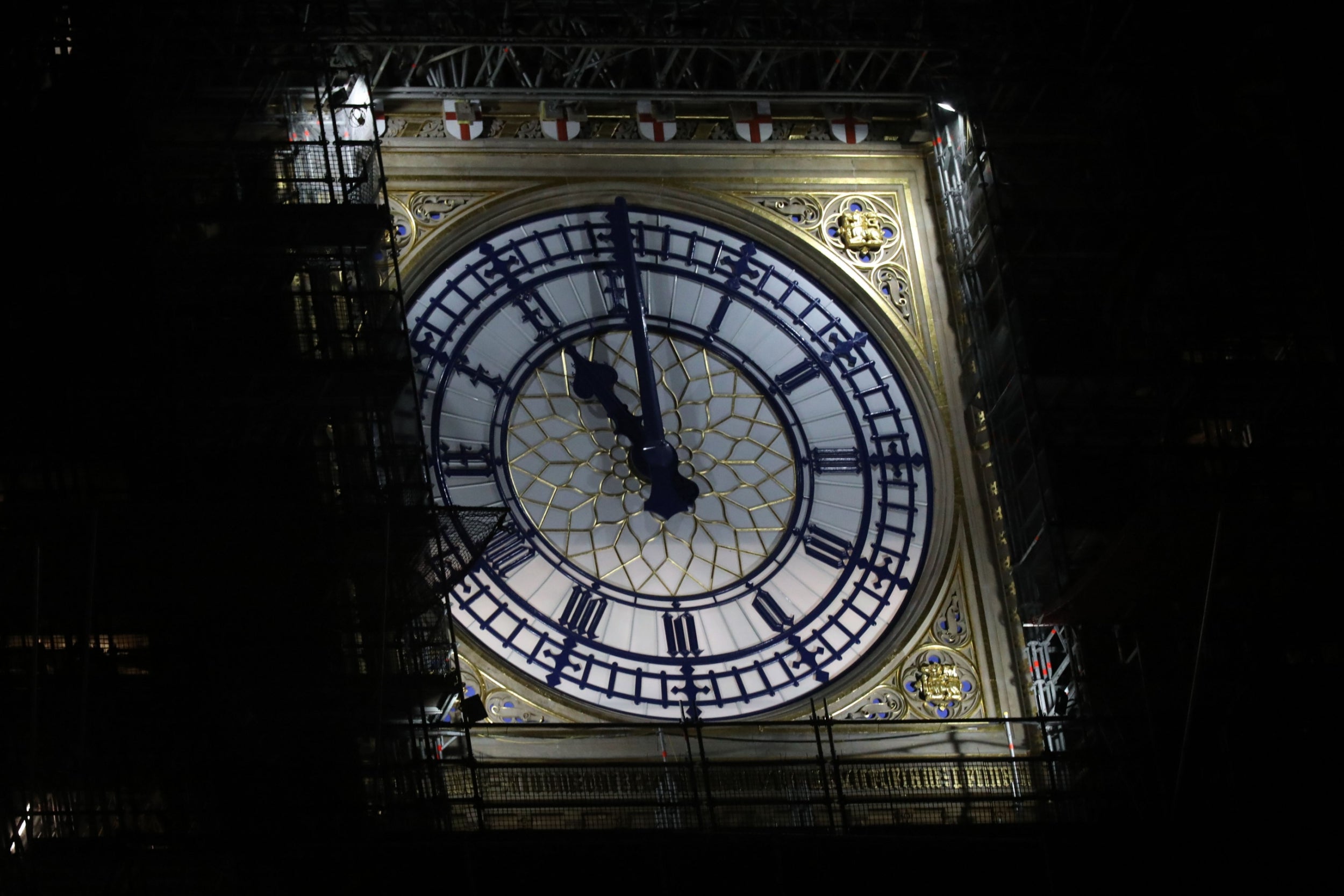
2/37
Big Ben, shows the hands at eleven o’clock at night
AFP via Getty
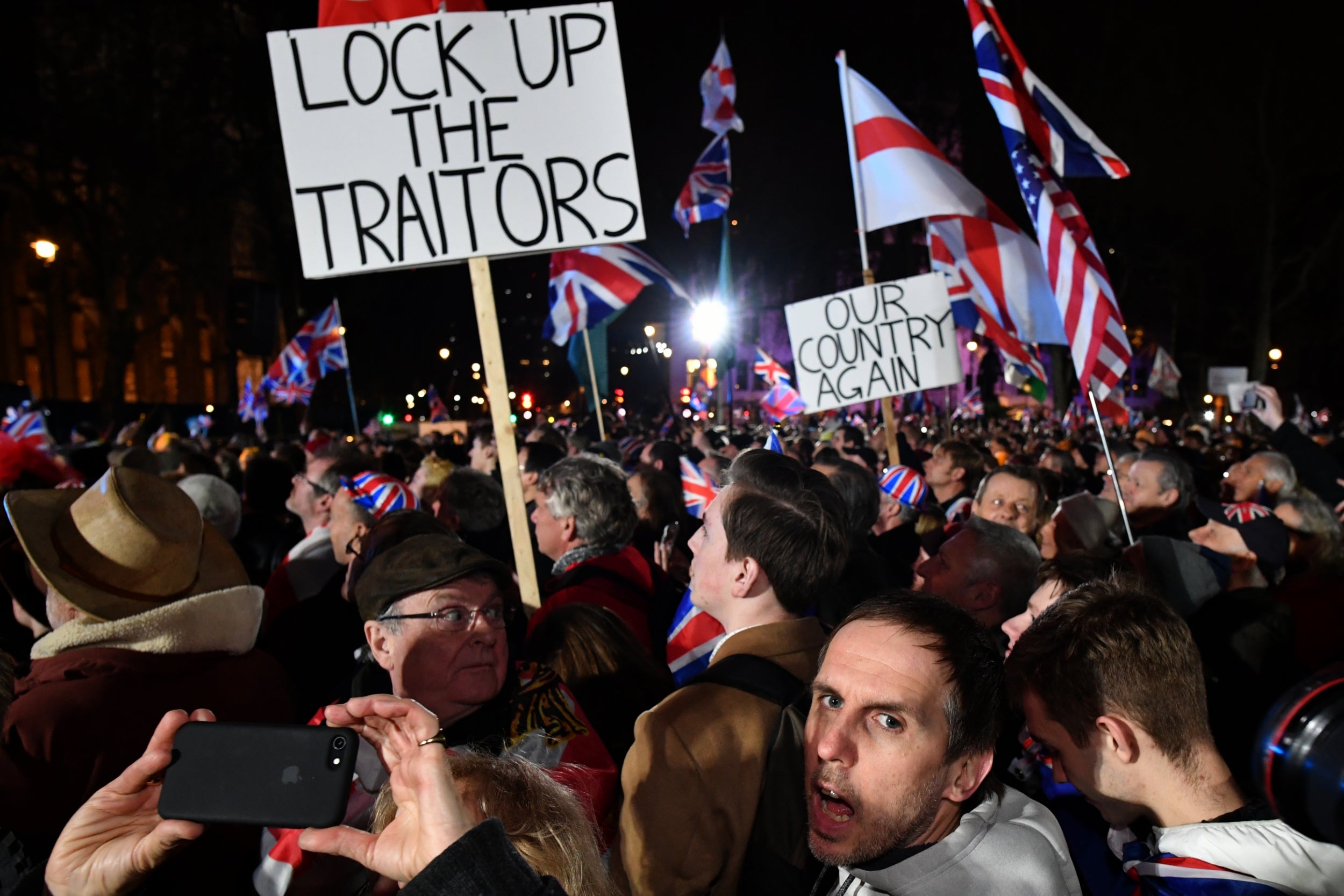
3/37
Pro Brexit supporters attend the Brexit Day Celebration Party hosted by Leave Means Leave
Getty
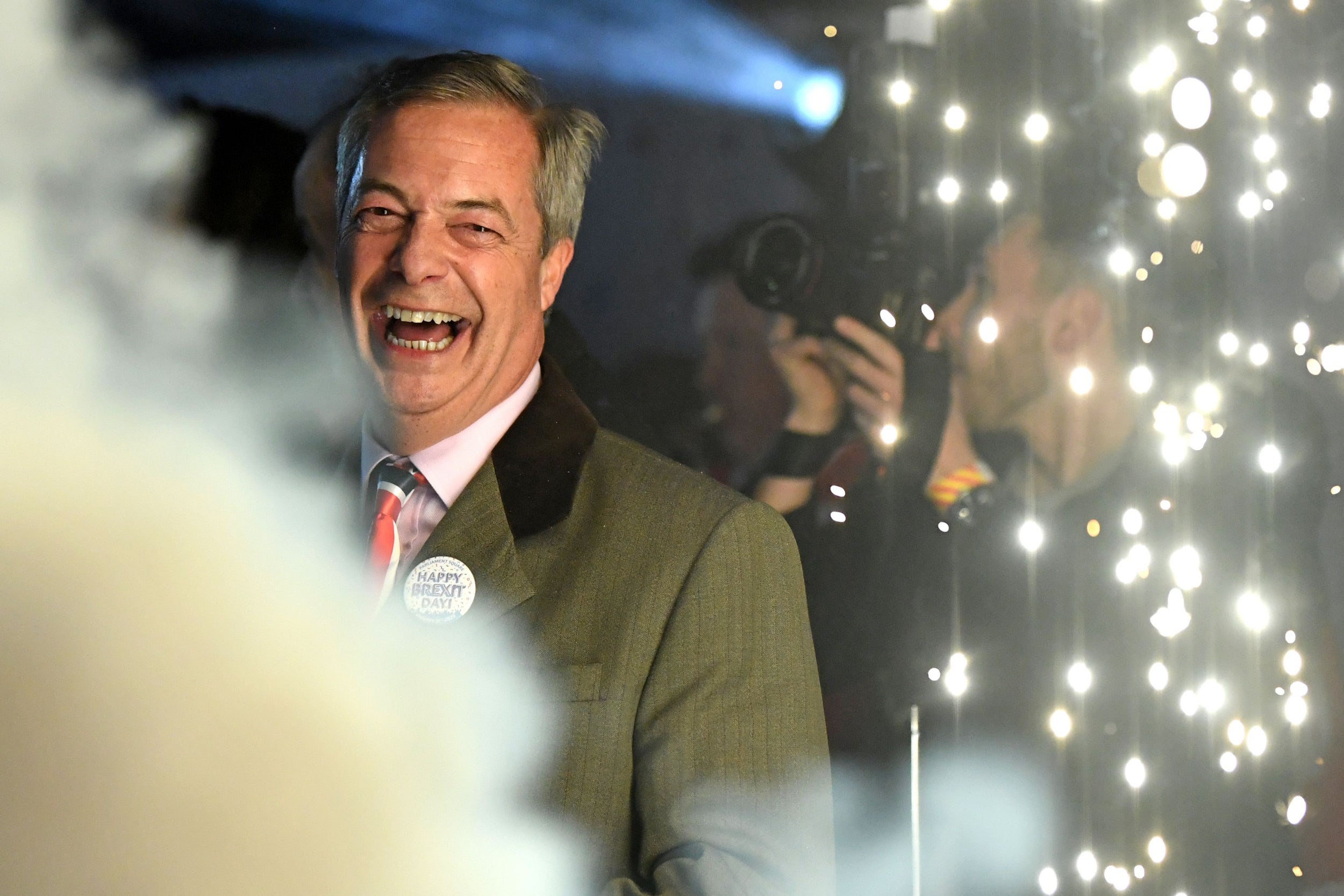
4/37
Brexit Party leader Nigel Farage smiles on stage
AFP/Getty

5/37
People celebrate in Parliament Square
Reuters

6/37
A Brexit supporter celebrates during a rally in Parliament square
AP
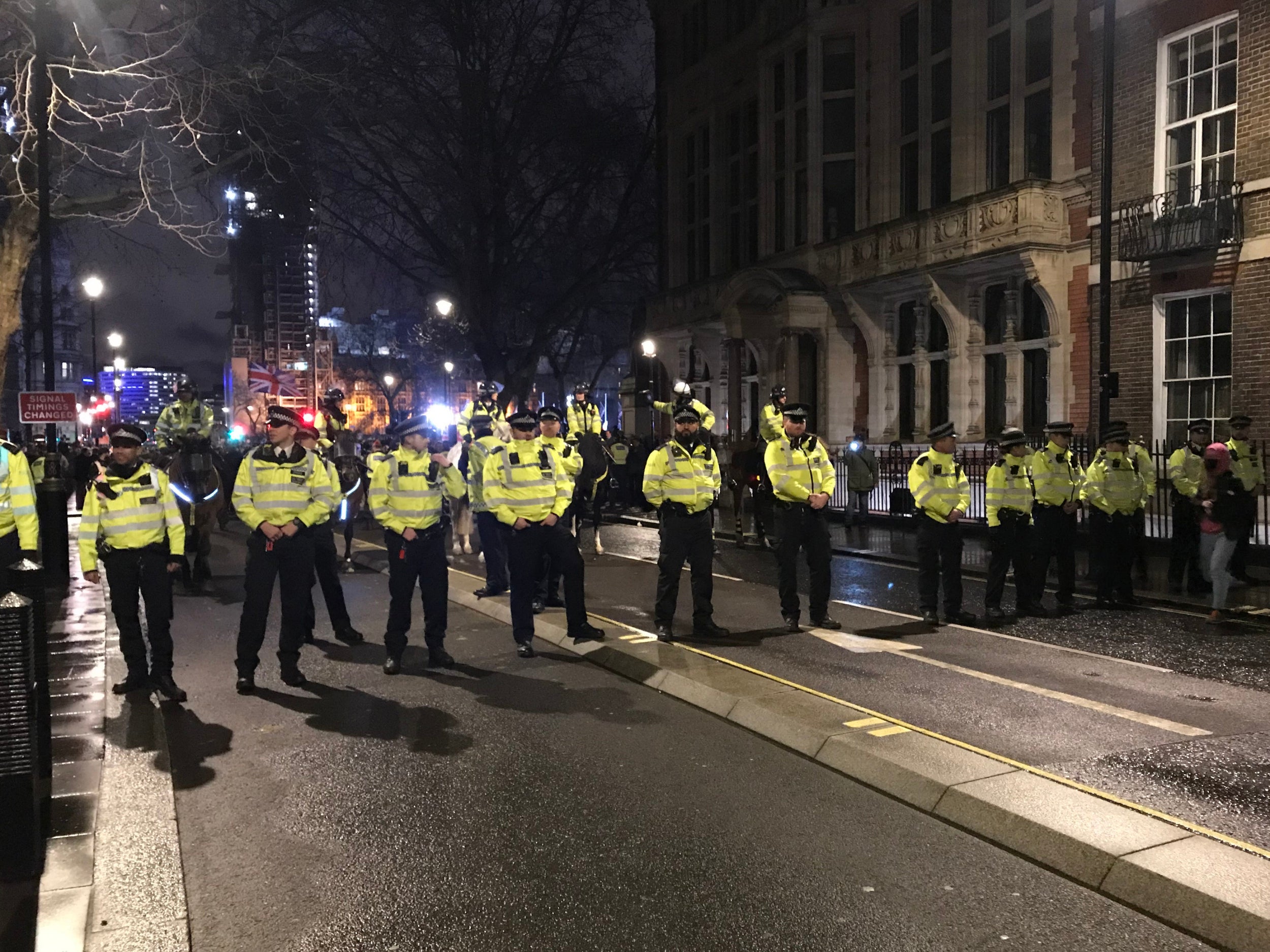
7/37
Police form a line at Parliament Square to prevent a small group of anti-Brexit protestors from going through to the main Brexit rally
PA

8/37
Nigel Farage speaks to pro-Brexit supporters
PA
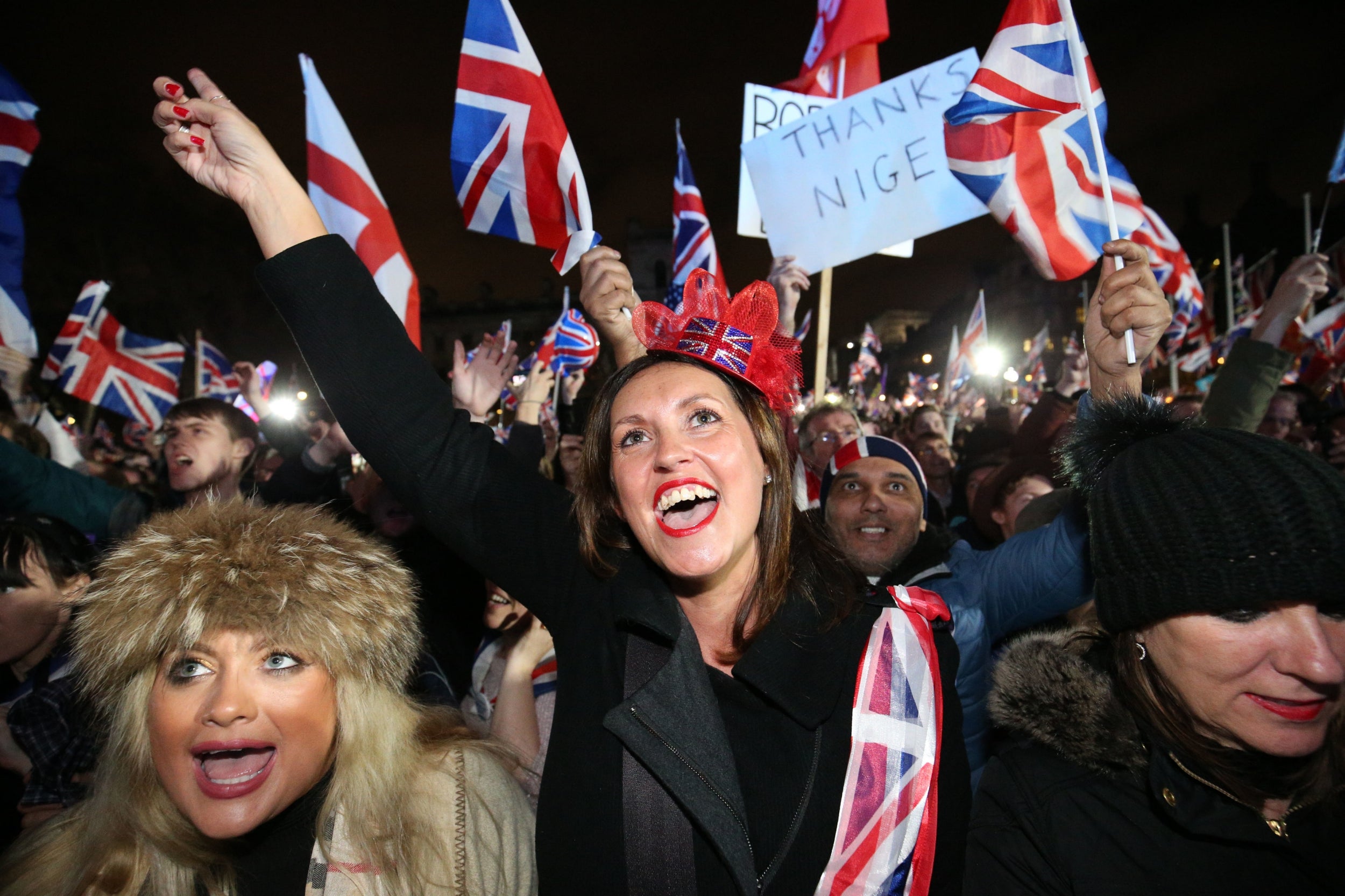
9/37
PA
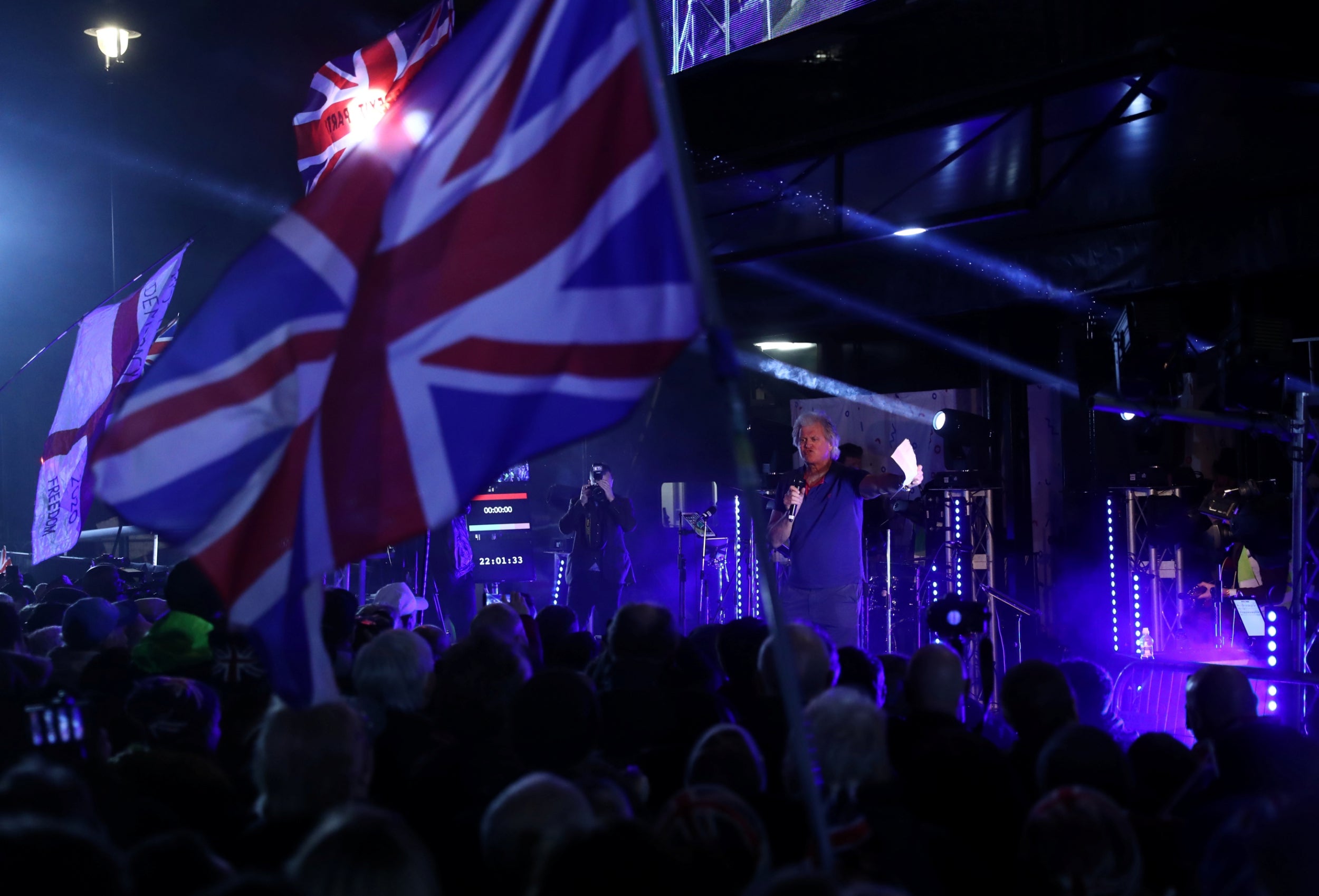
10/37
JD Wetherspoon Chairman Tim Martin speaks as people wave flags
Reuters

11/37
Getty
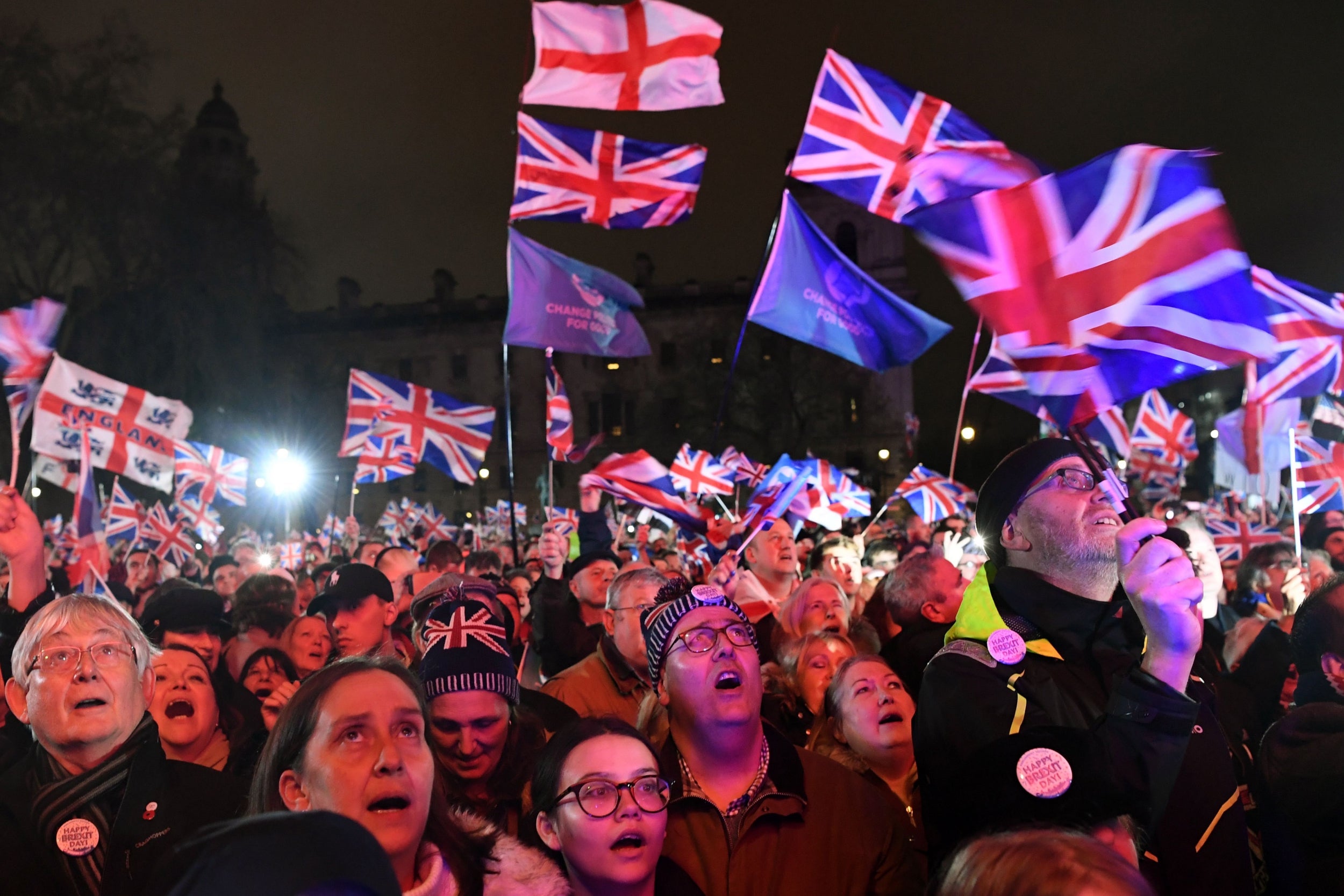
12/37
Brexit supporters wave Union flags as they watch the big screen
AFP via Getty
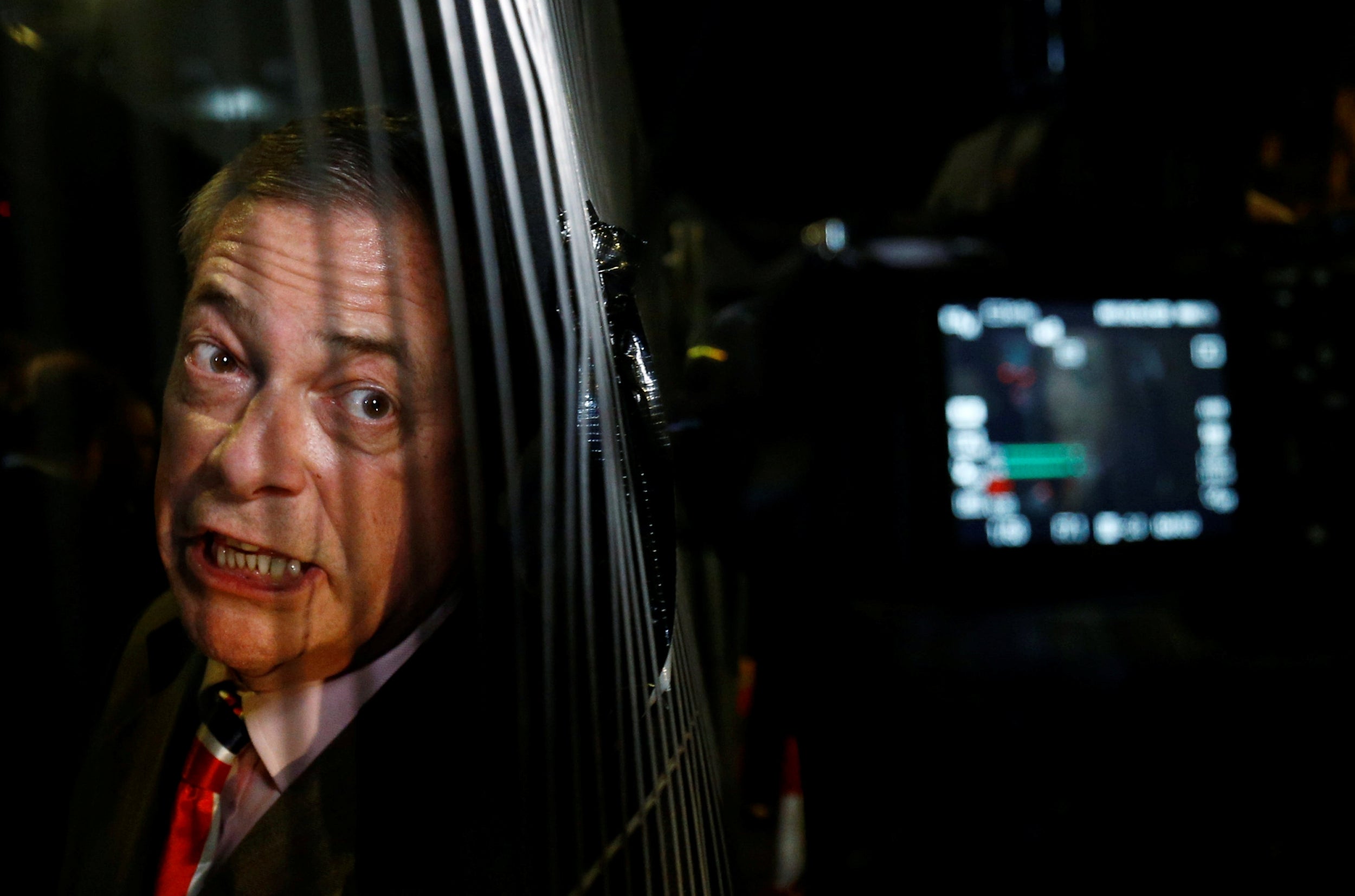
13/37
Brexit Party leader, Nigel Farage arrives
Reuters

14/37
Brexit supporters gather
AP

15/37
Ann Widdecombe speaks to pro-Brexit supporters
PA
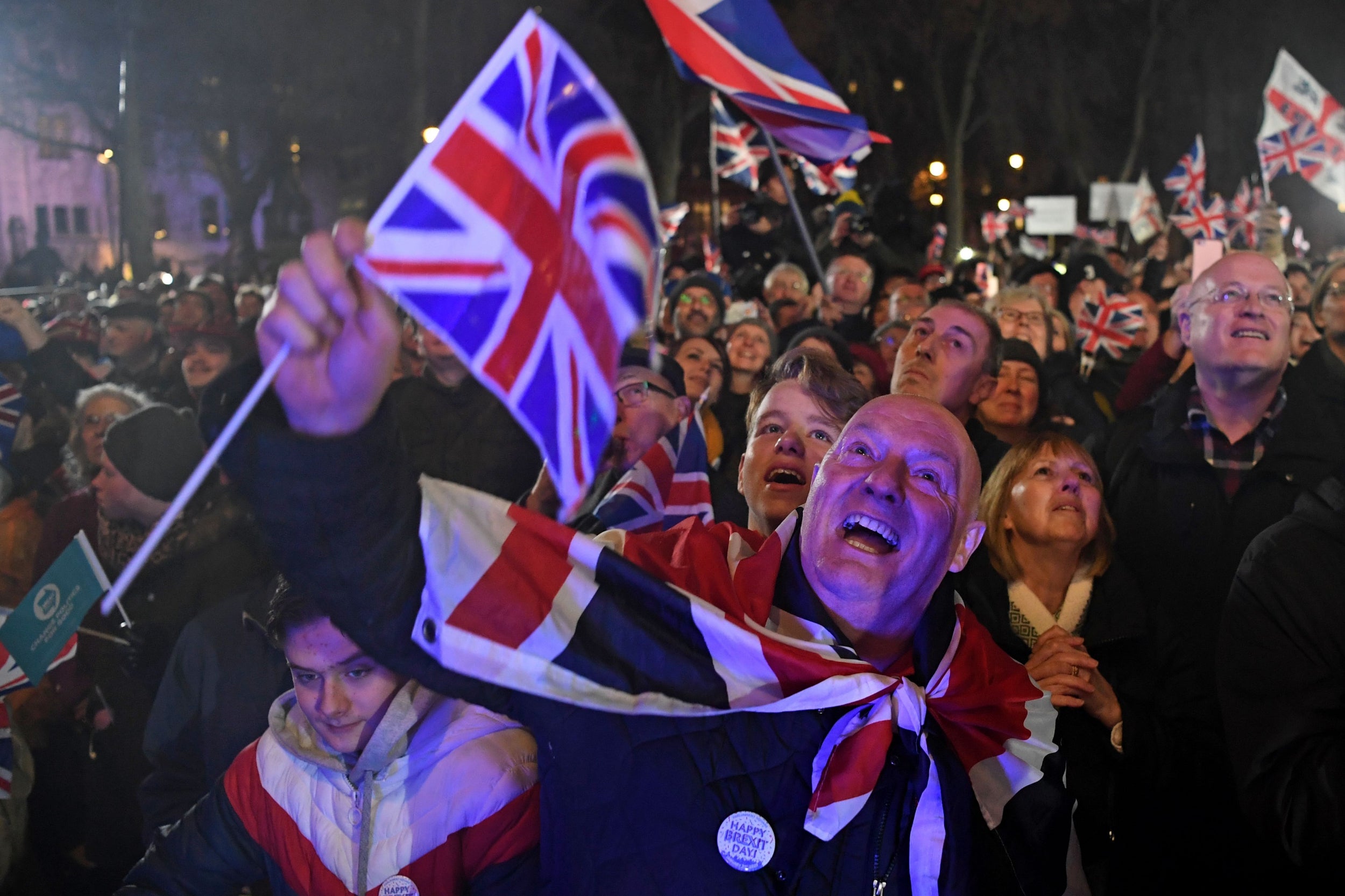
16/37
Brexit supporters wave Union flags as they watch the big screen
AFP via Getty
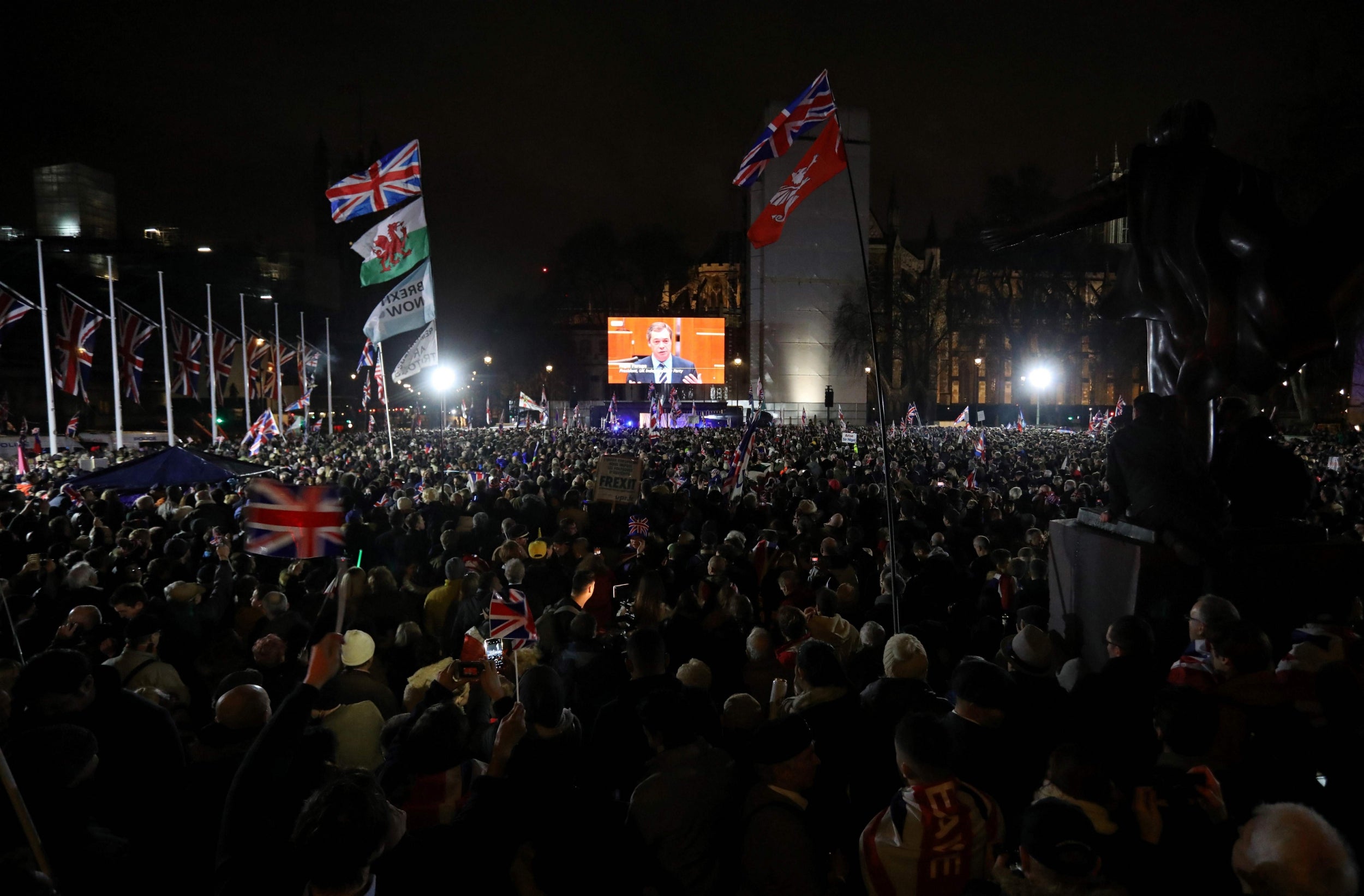
17/37
AFP via Getty

18/37
People wave British Union Jack flags as they celebrate
Reuters

19/37
Pro-Brexit demonstrators celebrate on Parliament Square on Brexit day
Reuters

20/37
A pro-Brexit supporter jumps on an EU flag
PA
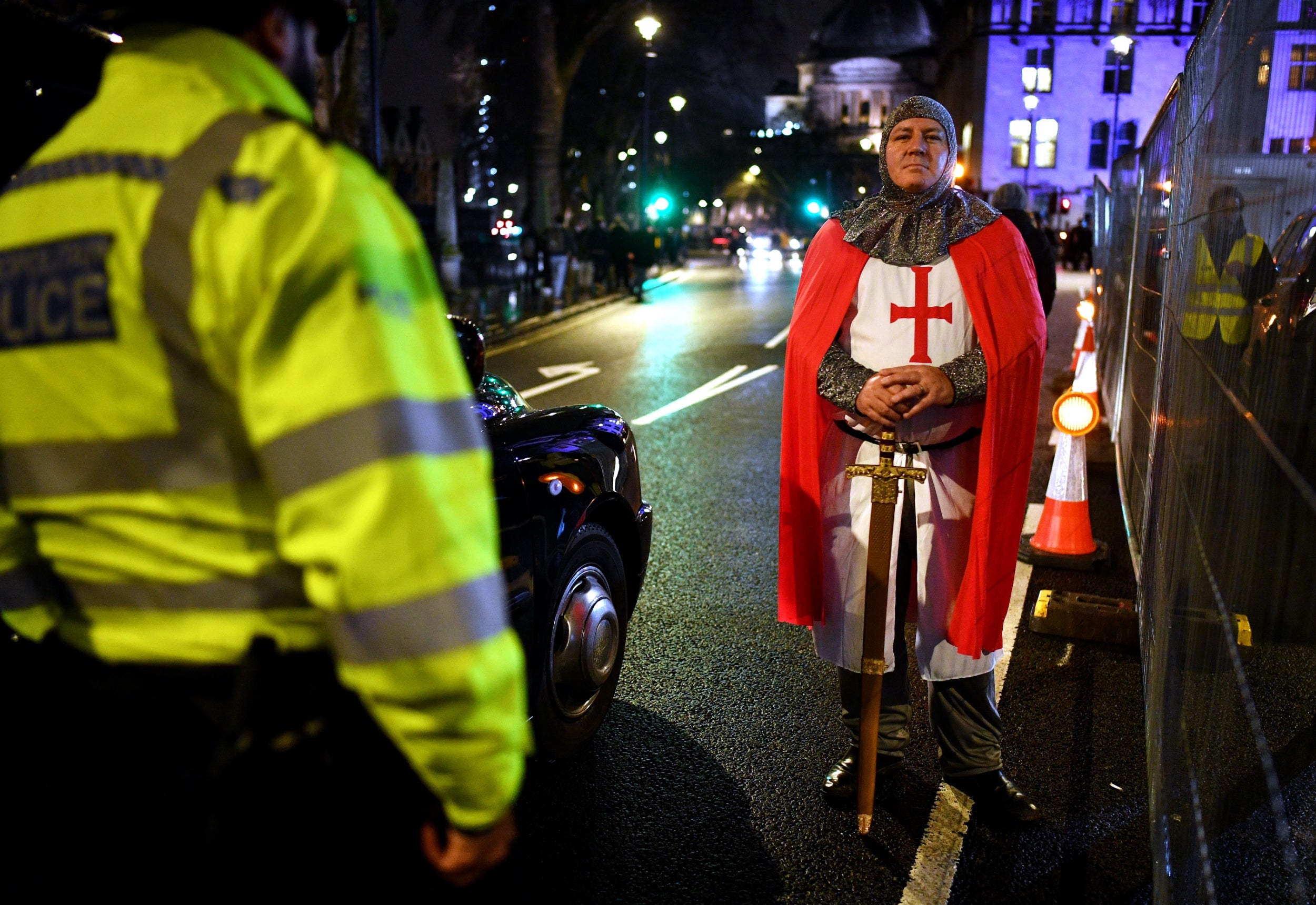
21/37
Getty

22/37
AFP via Getty
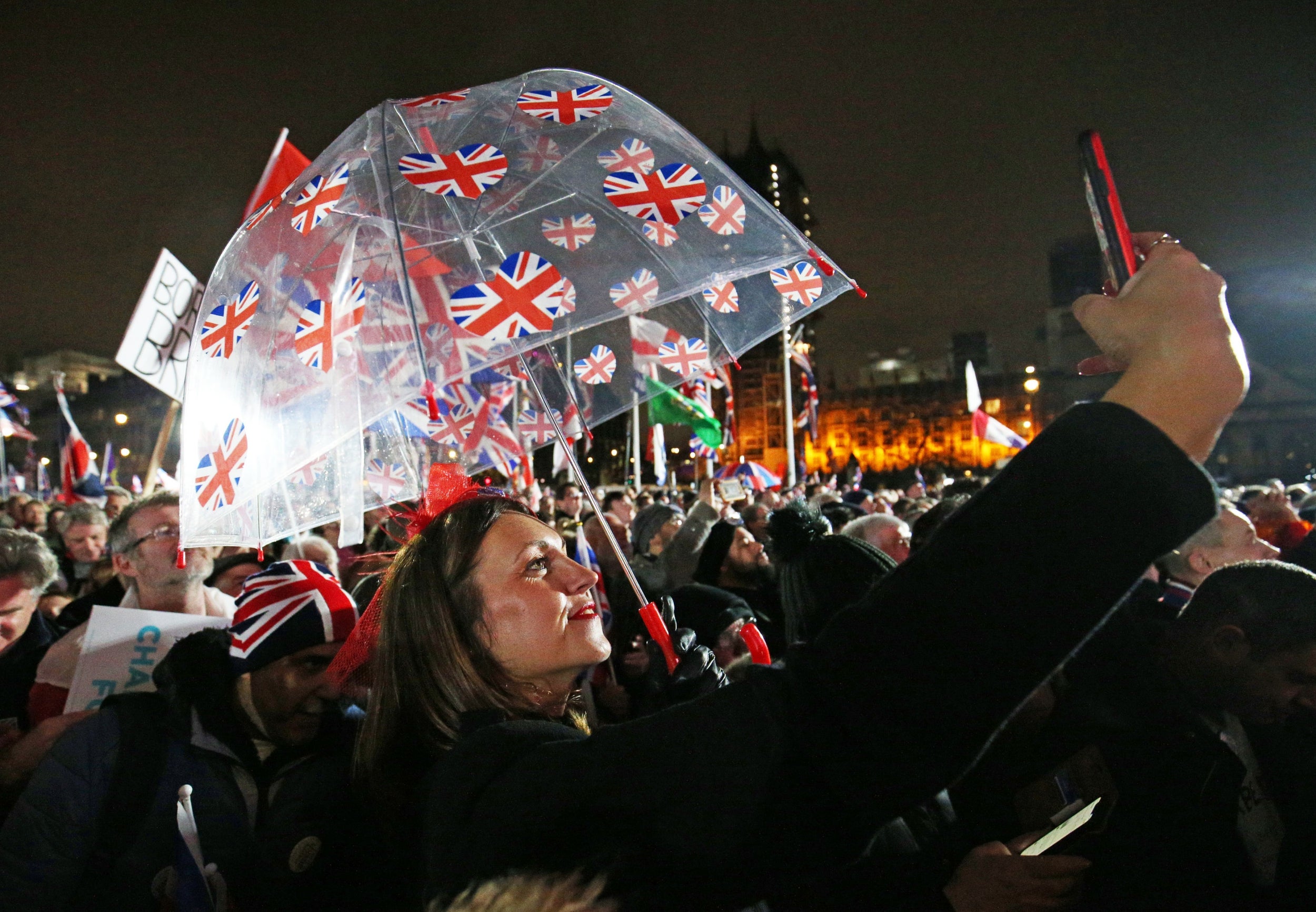
23/37
PA
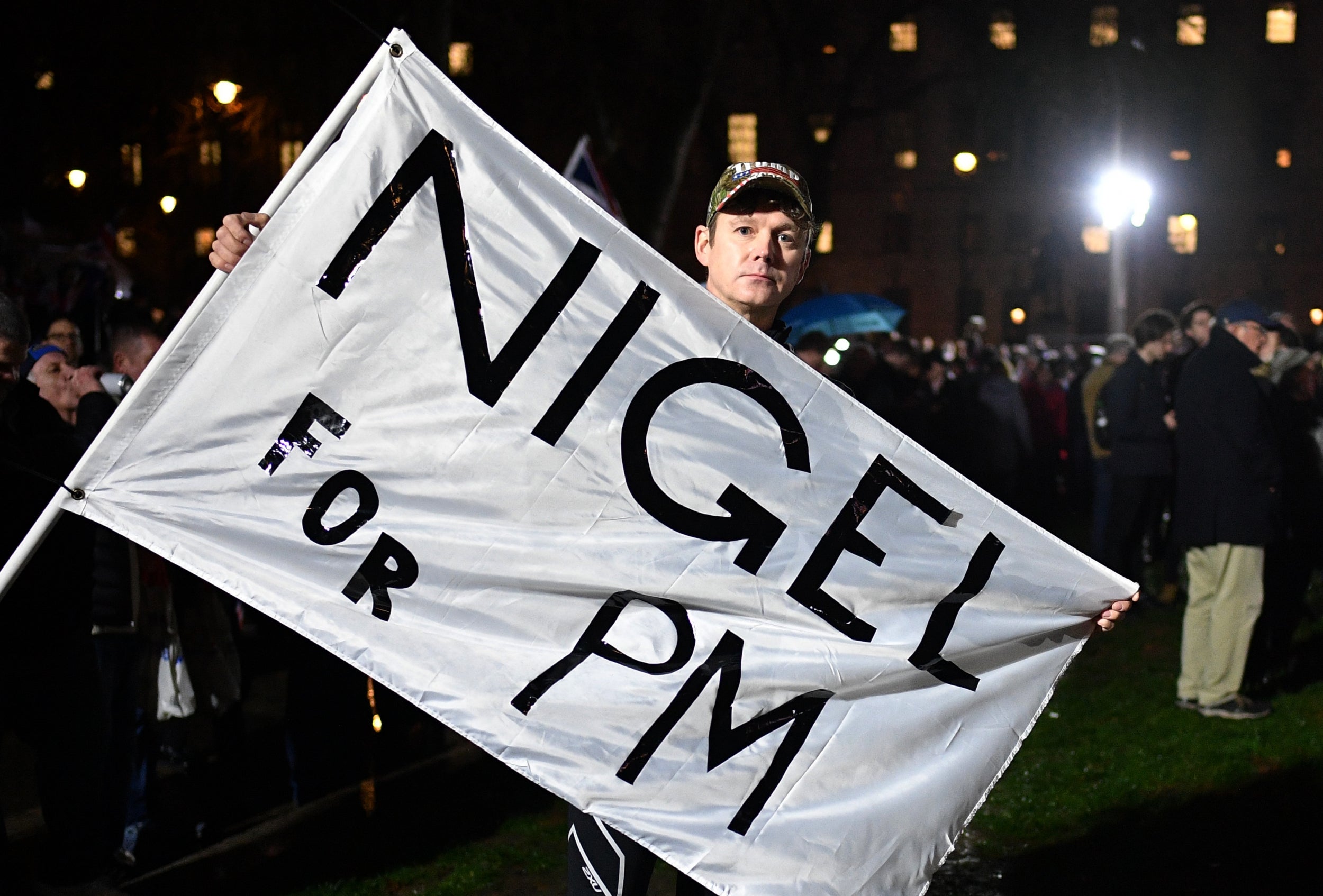
24/37
Getty
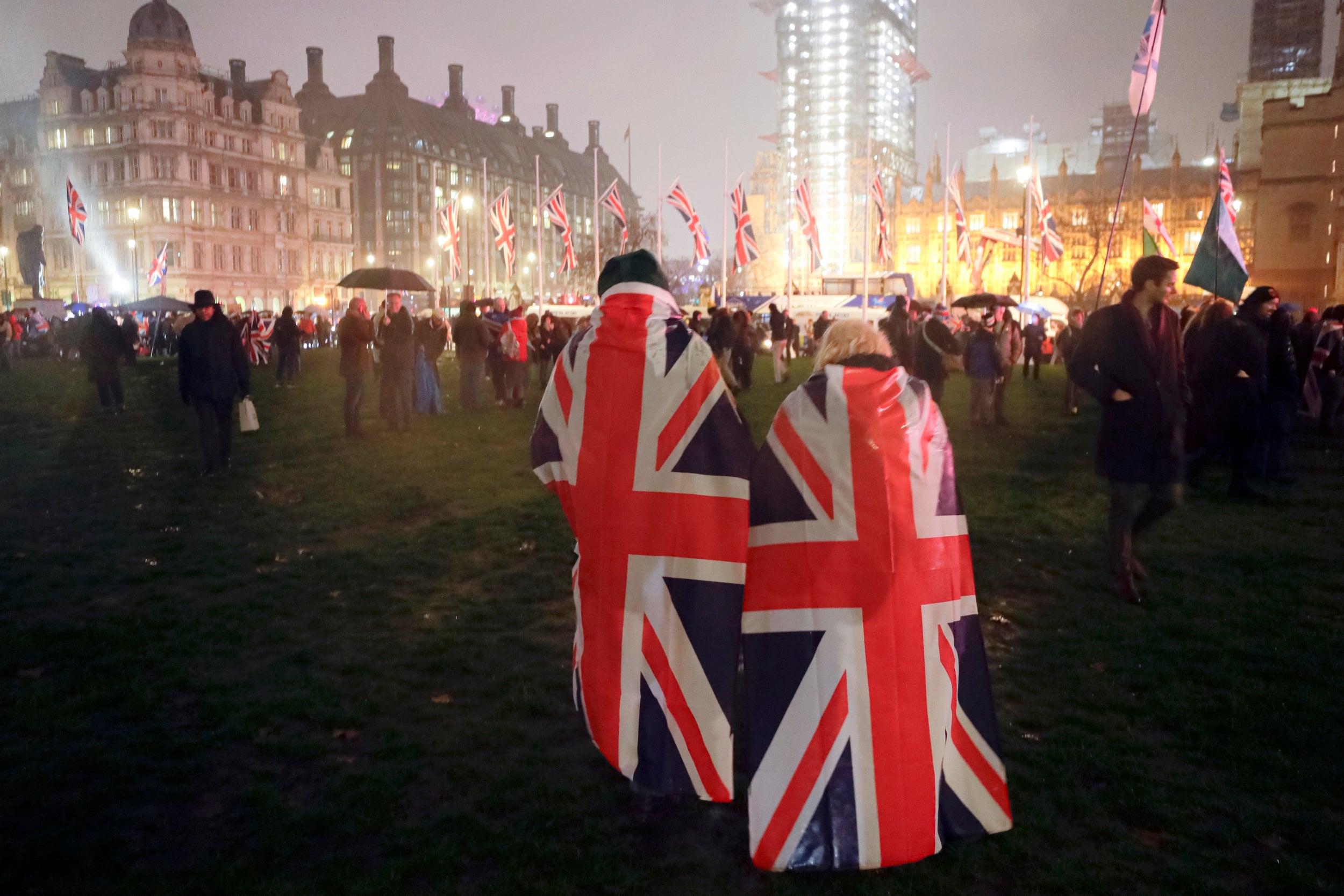
25/37
AP

26/37
Getty
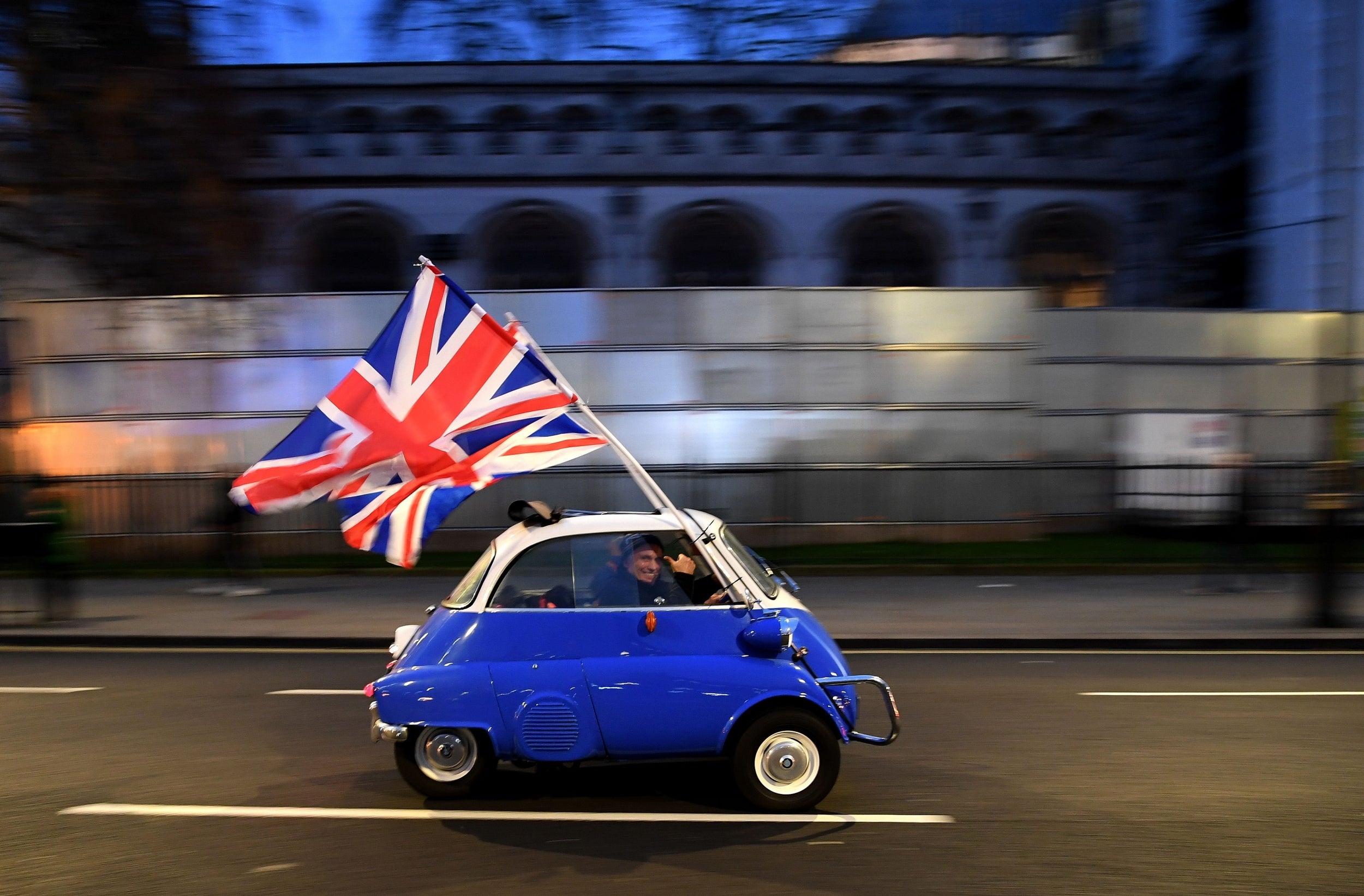
27/37
A man waves Union flags from a small car as he drives past Brexit supporters gathering
AFP via Getty
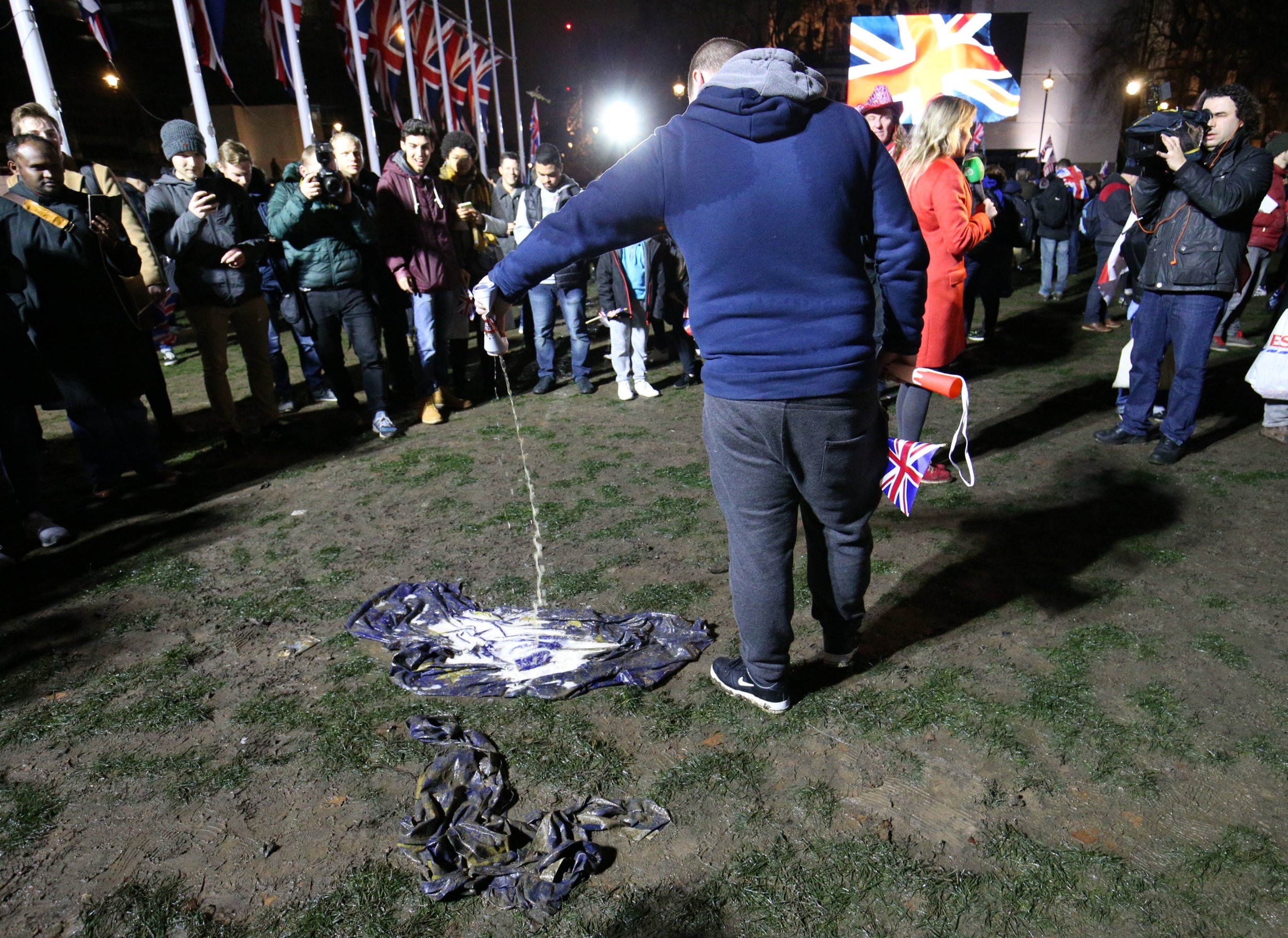
28/37
A pro-Brexit supporter pours beer onto an EU flag
PA

29/37
Getty
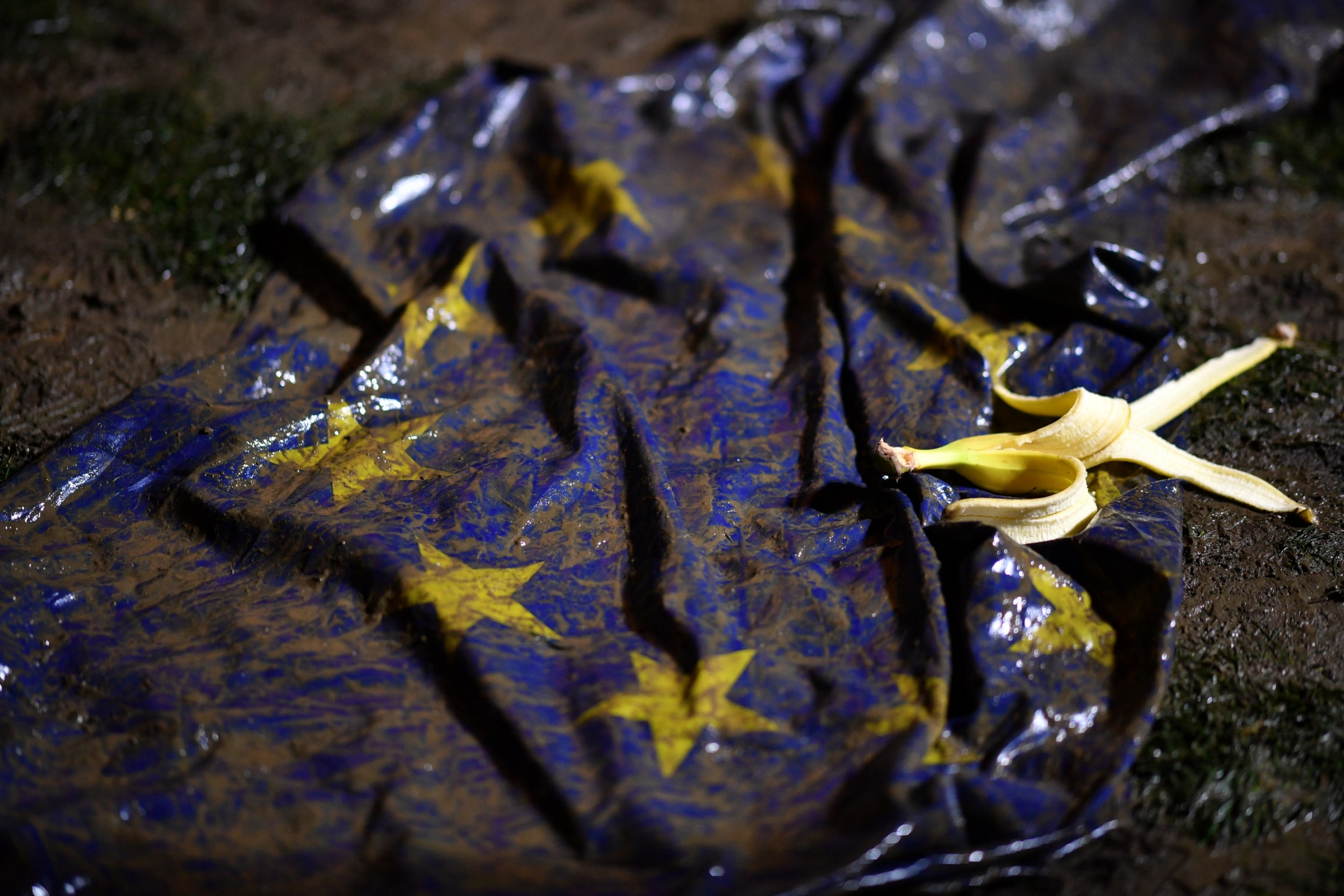
30/37
An EU flag lies trampled in the mud
Getty

31/37
Getty
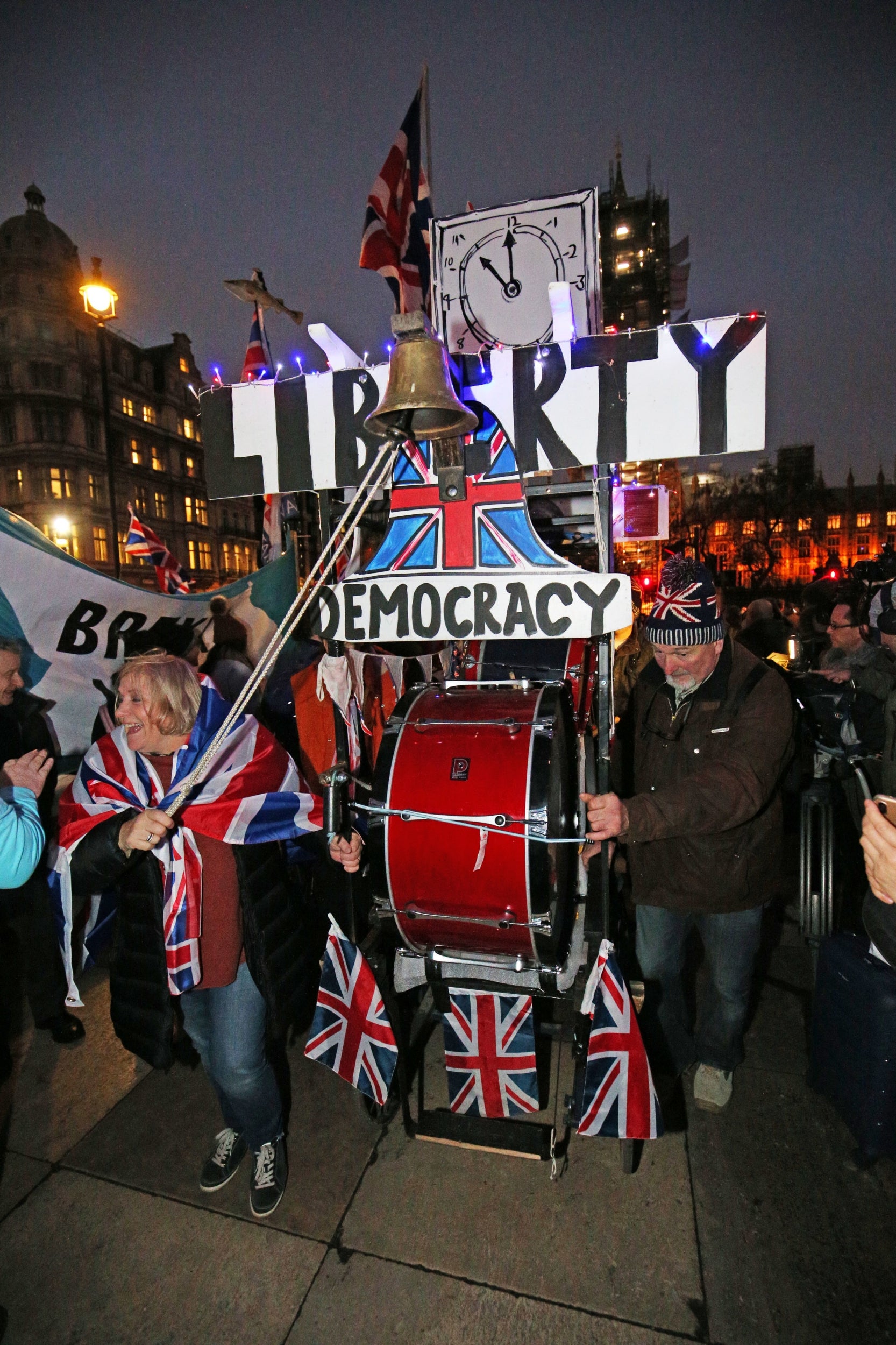
32/37
PA

33/37
PA

34/37
Getty

35/37
Getty
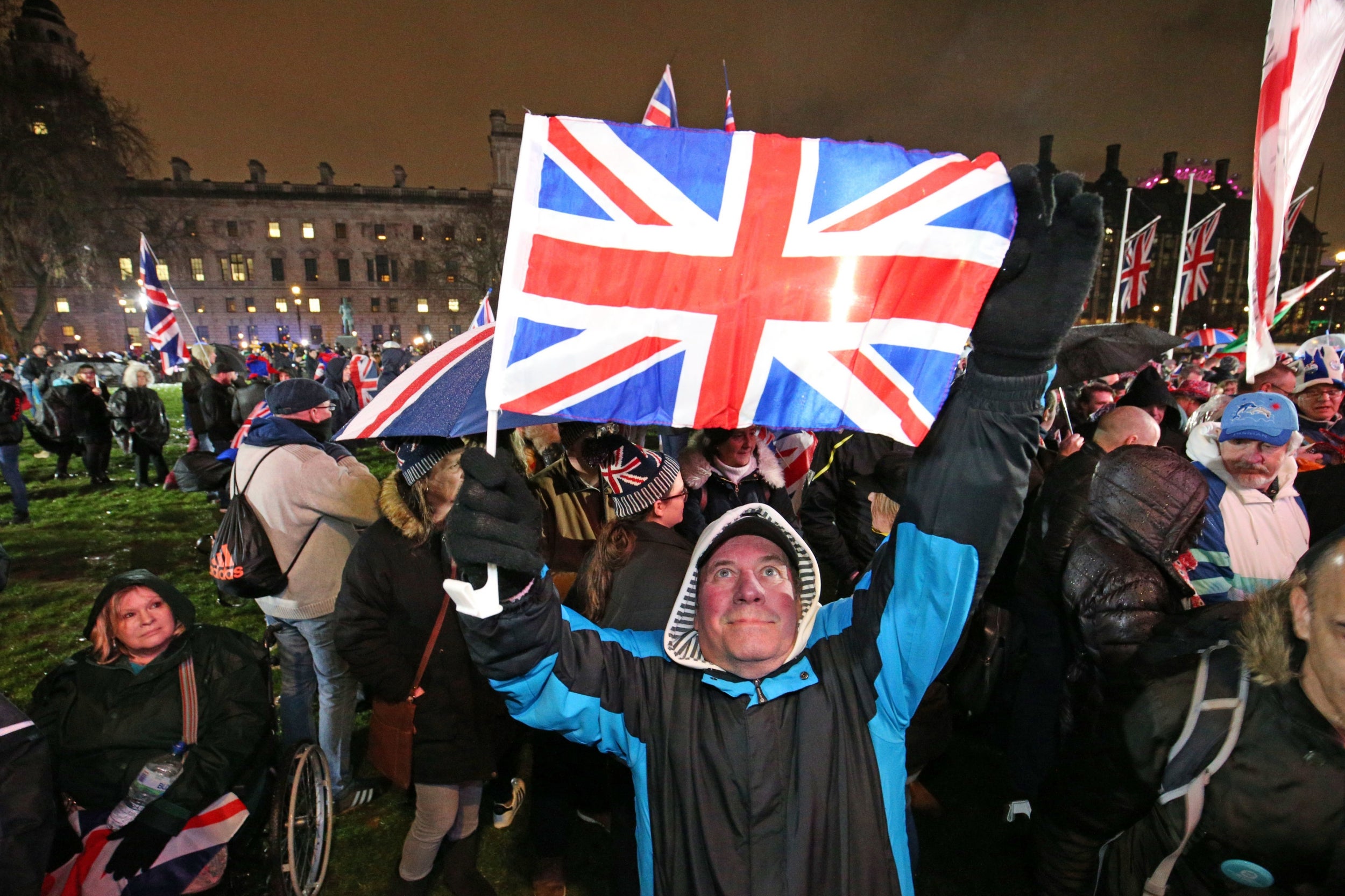
36/37
PA
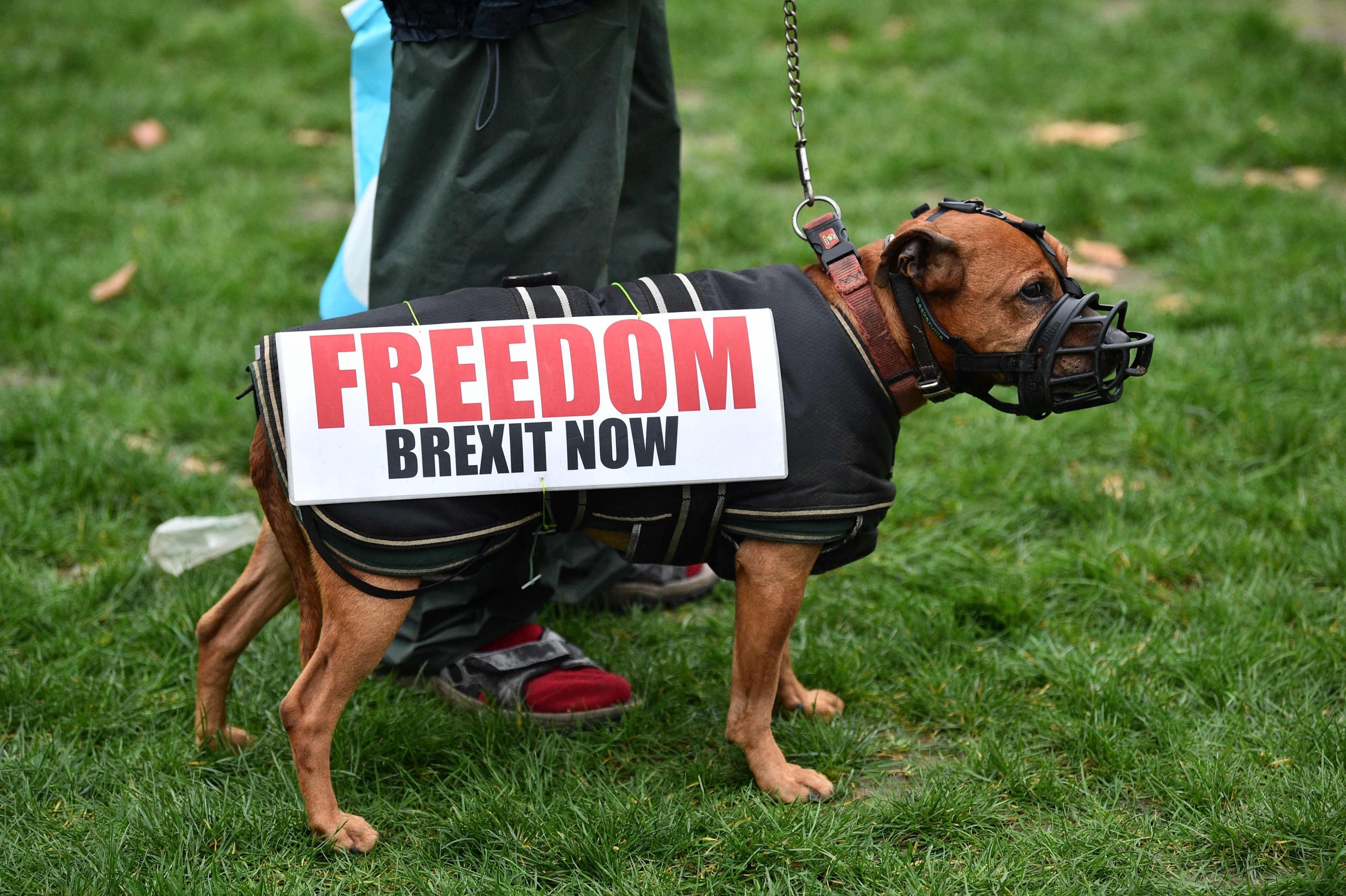
37/37
AFP via Getty

1/37
Pro-Brexit supporters celebrating in Parliament Square, after the UK left the European Union on 31 January. Ending 47 years of membership
PA

2/37
Big Ben, shows the hands at eleven o’clock at night
AFP via Getty

3/37
Pro Brexit supporters attend the Brexit Day Celebration Party hosted by Leave Means Leave
Getty

4/37
Brexit Party leader Nigel Farage smiles on stage
AFP/Getty

5/37
People celebrate in Parliament Square
Reuters

6/37
A Brexit supporter celebrates during a rally in Parliament square
AP

7/37
Police form a line at Parliament Square to prevent a small group of anti-Brexit protestors from going through to the main Brexit rally
PA

8/37
Nigel Farage speaks to pro-Brexit supporters
PA

9/37
PA

10/37
JD Wetherspoon Chairman Tim Martin speaks as people wave flags
Reuters

11/37
Getty

12/37
Brexit supporters wave Union flags as they watch the big screen
AFP via Getty

13/37
Brexit Party leader, Nigel Farage arrives
Reuters

14/37
Brexit supporters gather
AP

15/37
Ann Widdecombe speaks to pro-Brexit supporters
PA

16/37
Brexit supporters wave Union flags as they watch the big screen
AFP via Getty

17/37
AFP via Getty

18/37
People wave British Union Jack flags as they celebrate
Reuters

19/37
Pro-Brexit demonstrators celebrate on Parliament Square on Brexit day
Reuters

20/37
A pro-Brexit supporter jumps on an EU flag
PA

21/37
Getty

22/37
AFP via Getty

23/37
PA

24/37
Getty

25/37
AP

26/37
Getty

27/37
A man waves Union flags from a small car as he drives past Brexit supporters gathering
AFP via Getty

28/37
A pro-Brexit supporter pours beer onto an EU flag
PA

29/37
Getty

30/37
An EU flag lies trampled in the mud
Getty

31/37
Getty

32/37
PA

33/37
PA

34/37
Getty

35/37
Getty

36/37
PA

37/37
AFP via Getty
Mr Gove also confirmed a longstanding government position that the UK would not extend the transition period to provide more time for talks, raising the prospect of a no-deal Brexit.
Britain will leave the single market and customs union on 31 December, meaning seamless trade between the UK and Europe will end. The government wants to negotiate a free trade agreement that would eliminate all or most tariffs to be paid on goods, but even in this case businesses would still be subject to the new checks and extra paperwork.
The customs sector has said that 50,000 new customs agents will be required to deal with all the new bureaucracy, with nowhere near that recruited so far.
Britain left the European Union in January but is currently in a Brexit transition period under which all EU rules apply until the end of the year.



